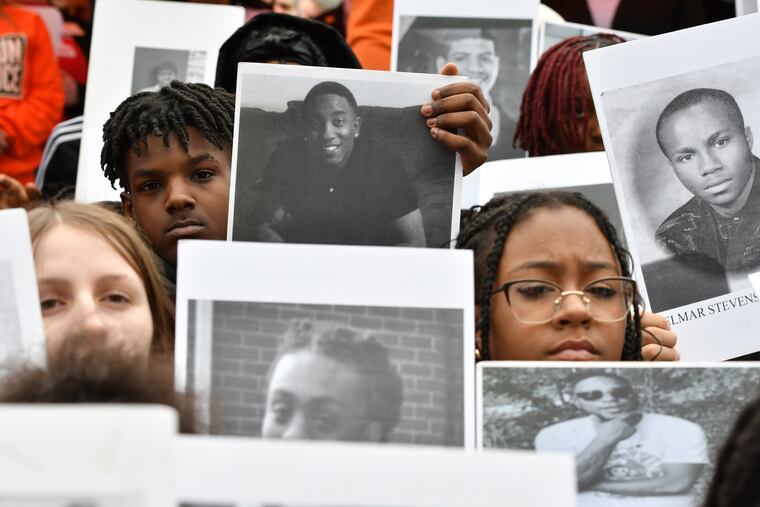Letters to the Editor | May 30, 2023
Inquirer readers on climate change and commonsense gun laws.

Pass commonsense gun laws
Handguns should only be permitted in the home for the protection of the occupants. No one should be allowed possession of a handgun outside their home. If caught, the penalty should be severe. The Second Amendment was needed to arm citizens to protect the United States in colonial times; we now have an army to do so. I am sure our forefathers never anticipated this amendment to be used for us to kill one another. Also, no gun, including rifles, should be able to shoot more than three bullets. This reduces the potential for mass killings. Years ago, New Jersey ruled shotguns required only three shells vs. the five that were allowed. Commonsense prevailed then and no rallies or objections were encountered. Other civilized countries have a similar program as outlined above, and they have considerably fewer homicides than we do.
The question is, do we really want to reduce killings, or do we want to spend billions of dollars on excuses for doing things that will only scratch the surface?
James Kuty, Pilesgrove, N.J.
Sticker bill didn’t stick
Back in 1980, I ran for state representative in South Philadelphia. The then-City Council passed a bill requiring each and every political poster to have a sticker attached to it. Stickers must be purchased from the city. These stickers cost 50 cents each. There was a monetary penalty if you did not follow this law. After the election, the candidate or their representatives were to take down the signs and return the sticker (from each poster) back to the city to get their money back. It’s amazing that I have never, ever seen any of these stickers on political posters since the law was passed, especially from any of these former City Council members and city officials.
Nick Silvano, former committeeman, Philadelphia
Reduce impacts of climate change
The May 25 article “Climate report: Philly will heat up” shows the urgency of acting on climate change. We need to get to the root of the problem, which is greenhouse gas emissions. The Regional Greenhouse Gas Initiative (RGGI) does just this. RGGI is a market-based approach to making fossil fuel-fired power plants pay for the carbon dioxide they emit, and then using those proceeds to offset some of the harm their pollution causes. That money can be used for renewable energy, energy efficiency, and other emission-reducing actions.
RGGI has already reduced emissions by 46% in the states that currently participate. Pennsylvania is the fourth-largest emitter of carbon dioxide among all states, which means its participation can play a big role in reducing climate change. Although Pennsylvania has become a member of RGGI, we have been unable to participate because RGGI implementation is tied up in court. Consequently, we lost out on over a billion dollars that could have been used to reduce emissions. As seen by the devastating effects of Hurricane Ida and other extreme precipitation events, Philadelphia is already being impacted by climate change today. Tell Gov. Josh Shapiro to support the Regional Greenhouse Gas Initiative.
Julia Nakhleh, Collegeville
The writer leads the Climate Reality Project: Philadelphia and Southeastern Pennsylvania Chapter.
Join the conversation: Send letters to letters@inquirer.com. Limit length to 150 words and include home address and day and evening phone number. Letters run in The Inquirer six days a week on the editorial pages and online.